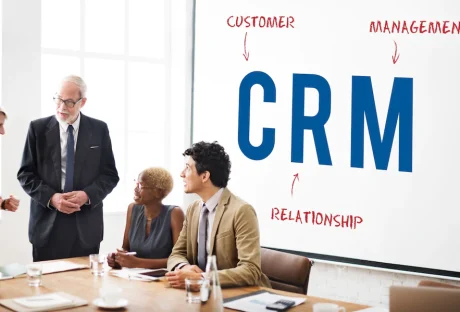Nobody likes to give up their hard-earned business at once. Sadly, unforeseen situations often compel us to give away our treasured organization. Now, the matter is which factors compels you to sell your business.
- If the profitability of your business falls drastically.
- The second important reason is if your experienced buyers show red flags.
- The third and most important reason is perfect competition in the market.
As we know the reasons for selling a business, it is important to know certain steps to help you get its right value after selling. The first step is to know the valuation of your business as per the current market rate. The second step is due diligence as well as financial trends.
Knowing The Worth Of Your Business: What It Takes?

Several factors help you know the real worth of your business. It’s not something Google or Wikipedia will tell you. Check out some of the key factors that you should consider while bringing out the best worth of your business:-
1. Book Value Of Your Business
Take your total assets and subtract it from your total liabilities. It is one of the most straightforward approaches you can adopt to trace the correct valuation of your business. You can get the data of your business valuation directly from your accounting / record-keeping books.
However, it works like a summary of your business valuation. The only limitation of this process is that you cannot get any future data on your revenue and earnings. It will give you a fair idea of the current valuation of your business as per the current market scenario.
2. Make Cash Value Analysis
If you understand your cash flow analysis correctly, you will consider the current and future potential earnings. Furthermore, it is also possible to measure the valuation of your business for a specific period. Additionally, selling your business is not difficult if you follow the correct process.
Now, if you do not have clarity regarding the terminologies of cash flow analysis, seek the help of online accounting software. There’s a higher probability of using a financial planner that can assist you in accurately preparing this business valuation.
3. Consider Using a Revenue Multiplier
This is less sophisticated but still an effective tool for quickly determining a company’s potential value. The winning secret? It multiplies your company’s current sales with multiple scores. Let’s get this concept clear with the help of an example.
A company with a value of $200K annual sales with a multiple of 5 will be worth 1 million. So, the more an investor becomes confident about the ROI, the more valuable your company will be.
The multiple that you will use will depend on several factors such as:-
- Competition in your industry.
- Market potential.
- Timing of your business.
- The power of your management team.
4. Earning Multiplier
The price-earning ratio is one of the best formulas to understand your business’s valuation. Here, the Price Per Share method is widely leveraged. First, divide the current market trading price by earnings per Share.
After this calculation, there’s a tentative understanding of the net profit earned by the company. The rule here is if you get higher EPS, your company has a higher valuation. Ultimately, the company’s current share price will highlight your company’s position in the stock market compared to your competitors.
5. The Tax Implications
Assessing the tax implications of selling a business is also a crucial stage. The structure of your business will help you determine its valuation. It will determine the tax responsibilities you will face after concluding the sale.
Your business’s overall tax liability will be determined based on the nature of the business assets and the method of sales you want to employ. Additionally, you can seek the help of a proficient tax consultant to get the correct value for your business taxes.
Steps For Preparing Your Business For Sale

You need to follow some simple steps to prepare your business for sale. Some of the crucial steps that you must consider here are as follows:-
- Determine your objectives and goals for your sale.
- Identify where your business stands today in comparison to other companies.
- To get the correct value of your business from the buyer, you must compare your financial goals.
- Identify whether there exists any mismatch between the valuation and the goals of your business.
- Collect all your diligence material.
- Identify who all are your potential bidders.
Optimizing your business for sale not only aids in attracting qualified buyers but also positions you to achieve a higher sale price by presenting your business as a well-organized, profitable entity with transparent operations and a solid financial footing.
Identifying The Right Buyer For Your Business

There are some of the simple steps that you need to employ to find the right buyer for your business. Some of the key factors that you must take care of here are as follows:
1. Determine The Profile Of Your Buyer
Before you search for your potential buyer, it is important to understand the ideal buyer profile. It includes several factors, like financial resources, management style, and industry experience. These are some of the crucial factors that you must consider before selecting your business buyer.
Your business buyer needs to understand the real value of your business both in monetary terms and reputation-wise. This will make things easier for you.
2. Conduct Market Research To Find Potential Buyers
You need to conduct market research to identify your potential buyers. Here, you have to compare the rates different buyers offer you. Select the best bid that suits your business valuation.
Some businesses employ mergers and acquisition techniques to get the best buyers for their organization. It includes the private equity groups that help you select the best buyer for your company. Private equity groups are categorized as industry and subsectors.
3. Consider The Budget Of Your Buyer
Different buyers have different budget limitations with them. Now, you must calculate the valuation of your company first. After that, you can review your buyer’s budget. The budget that matches your business valuation will be your buyer.
Therefore, you must understand your buyer’s budget constraints to select the right buyer for your business. Sometimes, businesses opt for an auction process to make the sale for their business.
4. Evaluate The Bids From Interested Buyers
Once you have evaluated the potential buyers or attracted the potential buyers, It is essential to evaluate each bid and negotiate the terms of the sale. The business selling process is a lengthy method.
It takes a complete evaluation of the process to get the right value for your business within a particular time. Here, proper planning of the bids matters a lot. Thus, you must be careful and select the best bid.
This is why finding the right buyer for your business ensures a smooth handover and contributes to the business’s long-term success and growth under new stewardship.
Final Take Away
Hence, if you want to sell your business, then the correct valuation and the right selection of buyers are important. Selling your business is a heartbreaking process. If you can control your emotions and fix the right valuation of your business, then you can get the right value.
You can use the money to set up another business, which could be a better option. Now, you can share your opinions and comments with us in our comment box. This will help us to know your take on this matter.
Additional Reading:






















